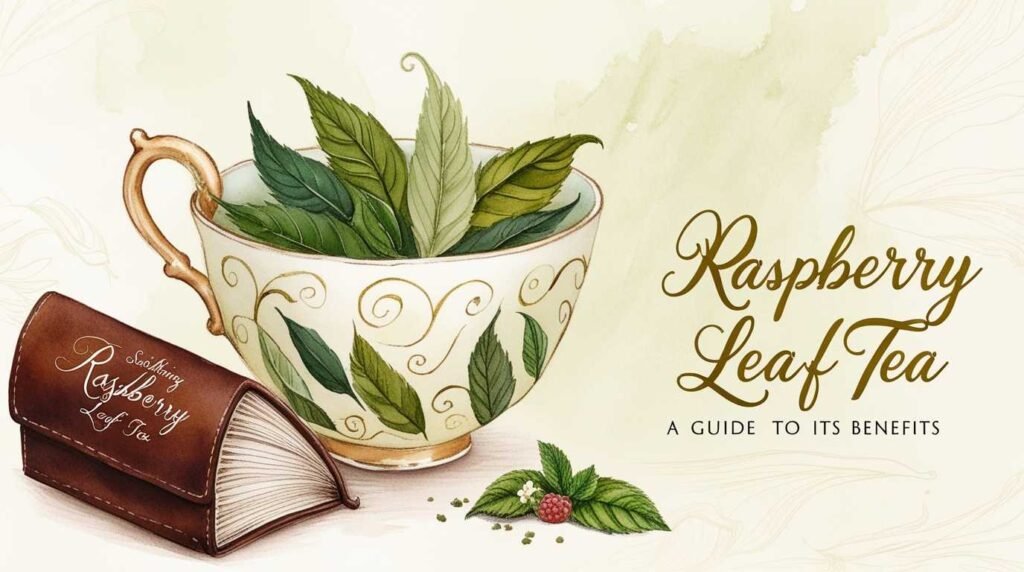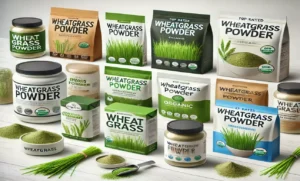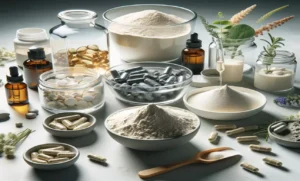Raspberry Leaf Tea Drink: A Guide to Its Benefits

Are you interested in adding to your herbal tea collection? Raspberry leaf tea drink is a must-try. Packed with health benefits and bursting with flavor, this herbal drink is sure to become your new favorite. In this guide, we will explore the various applications and advantages of raspberry leaf tea, revealing its potential as a premier herbal beverage. Prepare to enjoy a healthier lifestyle with each sip.
- Raspberry Leaf Tea: What It Is and Why You Should Try It
- How to Prepare the Perfect Cup of Raspberry Leaf Tea: A Step-by-Step Guide
- The Benefits of Raspberry Leaf Tea Drink: From Hormone Balance to Immune System Support
- Potential Risks and Side Effects of Raspberry Leaf Tea: What You Need to Know
- Delicious Raspberry Leaf Tea Recipes to Try at Home
- Other Uses for Raspberry Leaf: Beauty, Pregnancy, and More
- FAQs about Raspberry Leaf Tea: Benefits, Usage, and Considerations
- Conclusion
Raspberry Leaf Tea: What It Is and Why You Should Try It
Raspberry leaf tea is a widely enjoyed herbal beverage that has been used for centuries for its numerous health benefits. Made from the leaves of the red raspberry plant, this tea is rich in nutrients and antioxidants, making it a great addition to any healthy lifestyle.
But what exactly is raspberry leaf tea? This type of tea is made by steeping the dried leaves of the raspberry plant in hot water. The resulting brew has a light and slightly sweet taste, which makes it enjoyable to drink on its own or with a touch of honey or lemon.
One of the main reasons why raspberry leaf tea has gained popularity is its potential benefits for women’s health. Traditionally, it has been used to support both pre-and post-natal care, as well as menstrual health. It contains high levels of vitamins A, C, E, and B complex, as well as minerals such as calcium, magnesium, iron, and potassium. These nutrients can help support women’s overall reproductive health.
Furthermore, raspberry leaf tea is rich in polyphenols and flavonoids. These compounds act as antioxidants to protect cells from free radical damage and reduce inflammation. As a result, consuming this herbal drink may help boost your immune system and protect against chronic diseases.
Aside from its potential benefits for women’s health, raspberry leaf tea also offers other advantages for general wellness. Due to its high nutrient content and antioxidant properties, it can aid in improving skin health by promoting collagen production and reducing signs of ageing. Additionally, it may help improve digestion by soothing stomach discomforts such as bloating or cramping.
Moreover, raspberry leaf tea is caffeine-free, which makes it an excellent alternative to traditional teas or coffee. This means that you can enjoy multiple cups throughout the day without worrying about experiencing jitters or disruptions in your sleep patterns. It can also be a great option for those looking to reduce their caffeine intake.
Raspberry leaf tea is a versatile herbal beverage that provides a variety of possible health advantages. From supporting women’s reproductive health to improving overall wellness, this tea is definitely worth trying. Why not incorporate it into your daily routine and unlock the power of raspberry leaf tea?
How to Prepare the Perfect Cup of Raspberry Leaf Tea: A Step-by-Step Guide
Raspberry leaf tea has become well-liked for its numerous health benefits and delicious taste. However, preparing the perfect cup of raspberry leaf tea may seem like a daunting task to some. But fear not; with this step-by-step guide, you’ll be able to brew a rich and flavorful cup of raspberry leaf tea in no time.
Step 1: Gather Your Ingredients
To brew the ideal cup of raspberry leaf tea, you will require:
- One tablespoon of dried raspberry leaves
- 8 ounces of water (ideally, filtered or spring water is recommended)
- A teapot or mug with an infuser
- Honey or sweetener (optional)
Step 2: Boil Water
The first step is to boil the water. You can either use a stovetop kettle or heat the water in a microwave-safe container for about two minutes. It’s essential to use filtered or spring water as it will result in a better-tasting tea.
Step 3: Measure and Add Raspberry Leaves
Once your water is boiled, measure out one tablespoon of dried raspberry leaves and add them to your teapot or mug with an infuser. If you lack an infuser, you can simply add the leaves directly to the hot water.
Step 4: Pour Hot Water Over Leaves
Next, carefully pour the hot water over the raspberry leaves. Ensure that all the leaves are fully immersed in the water for the best steeping results.
Step 5: Steep for Five Minutes
Let your raspberry leaf tea infuse for five minutes. This will allow enough time for all of its flavors and nutrients to infuse into the hot water.
Step 6: Strain and Sweeten (Optional)
Once five minutes have passed, take out or strain the leaves from your cup or teapot. If desired, add honey or any other sweetener to enhance its flavor.
Step 7: Enjoy!
Your perfect cup of raspberry leaf tea is now ready to be enjoyed. You can choose to drink it hot or let it cool down and enjoy it as iced tea. For an extra touch, you can add a slice of lemon or fresh mint leaves for added flavor.
Tips for Preparing the Perfect Cup of Raspberry Leaf Tea Drink
- Use high-quality dried raspberry leaves for the best taste and health benefits.
- Don’t over-steep your tea, as it may result in a bitter taste.
- Add honey or sweetener sparingly to maintain the natural flavors of the tea.
- Store your raspberry leaf tea in an airtight container to preserve its freshness.
Preparing the perfect cup of raspberry leaf tea is simple and easy with these steps. Incorporating this herbal drink into your daily routine will not only provide you with a delicious beverage but also numerous health benefits. So why not give it a try? Your body will thank you.
The Benefits of Raspberry Leaf Tea Drink: From Hormone Balance to Immune System Support
For centuries, people have relied on raspberry leaf tea as a natural remedy for a wide range of health issues. This herbal drink is made from the leaves of the red raspberry plant, which are known to be packed with essential vitamins and minerals. Among its many benefits, one of the most notable is its ability to promote hormone balance and support the immune system.
Hormone imbalance can lead to a variety of uncomfortable symptoms for both men and women. In women, it can cause irregular menstrual cycles, PMS, and even fertility issues. Raspberry leaf tea contains phytoestrogens that mimic estrogen in the body, which helps regulate hormone levels and alleviate these symptoms. It is particularly beneficial for women going through menopause as it can help ease hot flashes and mood swings.
Moreover, raspberry leaf tea also supports reproductive health in women by strengthening the uterine muscles. This can aid in labor during childbirth and postpartum recovery. It may also help prevent miscarriages by supporting a healthy pregnancy.
For men, raspberry leaf tea has been found to improve prostate health due to its anti-inflammatory properties. It may help reduce swelling and discomfort associated with conditions such as enlarged prostate or prostatitis. Consistent intake of raspberry leaf tea may lower the likelihood of developing chronic conditions, including cancer and heart disease.
Furthermore, studies have shown that raspberry leaf tea has antibacterial properties that make it effective against common infections like colds and flu. Its anti-inflammatory effects may also provide relief from respiratory issues such as asthma or bronchitis.
This versatile herbal drink is not only beneficial for hormonal health but also supports overall well-being by aiding digestion and improving skin health. Its diuretic effect helps flush out toxins from the body. At the same time, its anti-inflammatory properties can improve skin conditions like acne, eczema, and psoriasis.
Raspberry leaf tea is an herbal drink that can improve hormone balance and support the immune system, offering a safe and effective alternative to traditional medications. So why unlock the power of raspberry leaf tea and incorporate it into your daily routine for optimal health and well-being?
Potential Risks and Side Effects of Raspberry Leaf Tea: What You Need to Know
For centuries, raspberry leaf tea has served as a herbal remedy, offering a range of health advantages. However, like any other natural remedy or supplement, it is important to be aware of potential risks and side effects that may occur when consuming raspberry leaf tea.
1. Allergic Reactions
Although rare, some people may experience an allergic reaction to raspberry leaf tea. This may present as skin rashes, itching, hives, facial and throat swelling, and breathing difficulties. Suppose you experience any of these symptoms after consuming raspberry leaf tea. In that case, it is important to discontinue use immediately and seek medical attention.
2. Interference with Medications
If you are on medication, it’s advisable to speak with your healthcare provider before adding any new herbal teas or supplements to your regimen. Raspberry leaf tea contains polyphenols, which have the potential to interact with certain medications such as blood thinners or hormone-based medications like birth control pills.
3. Uterine Contractions
One of the most well-known uses of raspberry leaf tea is to help stimulate labor during pregnancy by strengthening uterine contractions. While this can be beneficial for expectant mothers who are nearing their due date, it can pose a risk if consumed too early in pregnancy or in excessive amounts. It is recommended to only consume small amounts of raspberry leaf tea (1-2 cups per day) during pregnancy and speak with your healthcare provider before doing so.
4. Digestive Issues
Some individuals may experience mild digestive issues such as nausea, vomiting, diarrhea or stomach cramps when consuming large quantities of raspberry leaf tea. This is often due to the high tannin content in the leaves, which can irritate the lining of the stomach.
5. Lowers Blood Sugar Levels
Raspberry leaf tea has been shown to lower blood sugar levels, which can be beneficial for those with diabetes but may pose a risk for those already on medication for low blood sugar. If you have diabetes, it is important to monitor your blood sugar levels closely when incorporating raspberry leaf tea into your routine.
6. Not Suitable for Individuals with Certain Health Conditions:
Individuals with a history of kidney stones or gallstones should avoid consuming raspberry leaf tea as it contains oxalates, which can contribute to the formation of these types of stones. It is also not recommended for individuals with hormone-sensitive conditions such as breast cancer, endometriosis or uterine fibroids.
While raspberry leaf tea has many potential health benefits, it is important to be aware of potential risks and side effects. It is always best to consult with a healthcare provider before incorporating any new herbal teas or supplements into your routine and to consume raspberry leaf tea in moderation. If you notice any negative reactions, it is important to stop using the herbal drink right away. You are welcome to pursue medical assistance if required.
Delicious Raspberry Leaf Tea Recipes to Try at Home
Raspberry leaf tea has been used for centuries as a natural remedy for various health concerns, including menstrual cramps, pregnancy discomforts, and digestive issues. But did you know that this herbal drink can also be used to create delicious and refreshing recipes? Here are some mouth-watering raspberry leaf tea recipes that you can easily try at home:
1. Raspberry Iced Tea
Start by brewing a strong pot of raspberry leaf tea and letting it cool down. Then, add some honey or your preferred sweetener and stir until fully dissolved. Transfer the mixture into a pitcher filled with ice cubes, then add lemon slices or fresh raspberries for an additional flavor boost. This iced tea is ideal for warm summer days and can be refrigerated for later enjoyment.
2. Raspberry Leaf Smoothie
Whip up a healthy smoothie by blending frozen berries, banana, yoghurt, almond milk, and a few cups of brewed raspberry leaf tea. Not only does this recipe provide a refreshing twist to your usual smoothies, but it also adds an extra dose of antioxidants from the raspberries and the tea.
3. Raspberry Leaf Lemonade
This distinctive take on traditional lemonade is guaranteed to please both children and adults alike. Start by making lemonade using freshly squeezed lemons, water, sugar (or honey), and then add cooled brewed raspberry leaf tea into the mix. You can adjust the ratio of lemonade to tea based on your preference – more lemonade for tanginess or more tea for added health benefits.
4. Raspberry Leaf Popsicles
Who says popsicles are just for kids? These homemade popsicles made with raspberry leaf tea are not only delicious but also have many health benefits. Brew strong raspberry leaf tea with hot water and let it cool down completely before pouring it into popsicle moulds along with sliced fruits like strawberries or blueberries if desired. Freeze overnight and enjoy these refreshing treats the next day.
5. Raspberry Leaf Salad Dressing
Add a unique twist to your salads by using raspberry leaf tea as a dressing base. Mix olive oil, apple cider vinegar, honey, mustard, and cooled brewed raspberry leaf tea for a delicious and nutritious salad dressing. You can also add herbs like basil or parsley for an extra burst of flavor.
The possibilities are endless when it comes to creating recipes with raspberry leaf tea. These easy and tasty recipes are not only a great way to switch up your usual drinks but also allow you to reap the benefits of this powerful herbal drink in new and creative ways. Why not give these recipes a try and unlock the full potential of raspberry leaf tea in your everyday life?
Other Uses for Raspberry Leaf: Beauty, Pregnancy, and More
Raspberry leaf tea is not just a delicious and refreshing drink; it also has a multitude of other uses that make it a must-have in every household. From beauty benefits to pregnancy support, this herbal infusion has been used for centuries for its medicinal properties. In this section, we will explore the various ways in which raspberry leaf can be incorporated into your daily routine beyond just a simple cup of tea.
Beauty Benefits
Raspberry leaf is known for its high levels of antioxidants and anti-inflammatory compounds, making it an excellent addition to any beauty regimen. The antioxidants help fight against free radicals that contribute to premature ageing, making raspberry leaf tea an effective anti-ageing tool. Drinking this herbal infusion on a regular basis can improve skin elasticity and reduce the appearance of fine lines and wrinkles.
In addition, raspberry leaves are rich in tannins, which possess natural astringent qualities. This makes it effective for addressing common skin conditions like acne, eczema, and psoriasis. You can use cooled raspberry leaf tea as a toner or add it to your bathwater for overall skin health.
Pregnancy Support
One of the most recognized applications of raspberry leaf is its support for women throughout pregnancy. It is thought to enhance uterine strength and readiness for labor by toning the muscles. Many midwives recommend drinking raspberry leaf tea during the third trimester of pregnancy to help with contractions during labor.
Furthermore, this herbal infusion is rich in vitamins and minerals like calcium, iron, and magnesium, which are essential for both the mother’s and baby’s health during pregnancy.
Hormonal Balance
Due to its high content of phytoestrogens (plant-based estrogen), raspberry leaf tea may help regulate hormones in women. This can be especially beneficial for those experiencing menopause symptoms such as hot flashes, mood swings, and irregular periods.
In addition to hormonal balance, drinking raspberry leaf tea regularly may also help alleviate menstrual cramps and heavy bleeding.
Digestive Aid
Raspberry leaf tea is traditionally used for its anti-inflammatory properties to help soothe an upset stomach, reduce bloating, and improve digestion. The tannins in raspberry leaf have also been found to be effective in treating diarrhea.
For best results, it is recommended to drink raspberry leaf tea between meals or after a heavy meal.
Raspberry leaf tea offers numerous benefits beyond just being a delicious beverage. Incorporating it into your daily routine can help improve skin health, support pregnancy and hormonal balance, aid digestion, and more. So why not unlock the power of this herbal drink and reap its many benefits?
FAQs about Raspberry Leaf Tea: Benefits, Usage, and Considerations
Who should not drink raspberry leaf tea?
Individuals who are allergic to raspberries or other members of the rose family should avoid consuming raspberry leaf tea. Additionally, those with certain medical conditions, such as hormone-sensitive conditions or kidney stones, should consult a healthcare professional before consuming this herbal tea.
Can I put milk in raspberry leaf tea?
While it is possible to add milk to raspberry leaf tea, it is not a common practice. Raspberry leaf tea is usually savored by itself or enhanced with a bit of honey or lemon for extra flavor.
What does drinking raspberry leaf tea do?
Drinking raspberry leaf tea is believed to offer several potential benefits, particularly for women. It is commonly associated with supporting reproductive health, toning the uterus, and promoting a healthy pregnancy. However, scientific evidence is limited, and it is advisable to consult with a healthcare professional for personalized advice.
Does red raspberry leaf tea help you lose weight?
While raspberry leaf tea is often praised for its potential health benefits, weight loss is not among its scientifically proven effects. It is important to maintain a balanced diet and exercise regularly for sustainable and healthy weight management.
Is it safe to consume raspberry tea on a daily basis?
Moderate consumption of raspberry leaf tea is generally considered safe for most individuals. However, it is advisable to consult with a healthcare professional, particularly during pregnancy or if you have any underlying medical conditions, to ensure it is suitable for your specific circumstances.
What does raspberry leaf tea do to hormones?
Raspberry leaf tea is believed to regulate hormones, particularly in women. It is thought to help balance hormones by supporting the reproductive system, although scientific evidence is limited. As with any herbal remedy, it is recommended to consult with a healthcare professional for personalized advice.
Why is raspberry leaf tea beneficial for the uterus?
Raspberry leaf tea is often associated with toning and strengthening the uterus. It is believed to support uterine health and prepare the muscles for childbirth. However, it is essential to consult with a healthcare professional for guidance and to ensure its safe use, especially during pregnancy.
When is the right time to begin drinking raspberry leaf tea during pregnancy?
It is generally recommended to start drinking raspberry leaf tea during the third trimester of pregnancy, around 32 to 34 weeks. It is important to seek advice from a healthcare professional before adding any herbal remedies to your health routine.
What are the disadvantages of raspberry leaf tea during pregnancy?
While raspberry leaf tea is generally considered safe for most pregnant women, excessive consumption or use before the recommended timeframe may have potential risks. Some concerns include the stimulation of uterine contractions and the possibility of premature labor. Therefore, it is vital to consult with a healthcare professional for personalized advice.
Does raspberry leaf tea affect the menstrual cycle?
Raspberry leaf tea is not known to directly affect the menstrual cycle. However, due to its potential hormonal effects, it is always advisable to consult with a healthcare professional if you have specific concerns about your menstrual cycle or any underlying conditions
Does raspberry tea help with labor?
Raspberry leaf tea is commonly believed to help prepare the uterus for labor and potentially shorten the duration of labor. However, scientific evidence is limited, and it is crucial to consult with a healthcare professional for personalized guidance on labor preparation and support
Conclusion
With its numerous health benefits and delicious taste, raspberry leaf tea is truly a powerhouse herbal drink. From relieving menstrual cramps to boosting the immune system, this tea has been used for centuries as a natural remedy for various ailments. Whether you’re looking to improve your overall well-being or enjoy a warm cup of tea, incorporating raspberry leaf into your daily routine can have many positive effects. So next time you’re in need of a comforting beverage, reach for some raspberry leaf tea and experience its incredible powers for yourself.
Remember, while raspberry leaf tea is often praised for its potential benefits, individual experiences may vary. It is always advisable to consult with a healthcare professional for personalized advice, especially if you are pregnant or have any underlying medical conditions.






